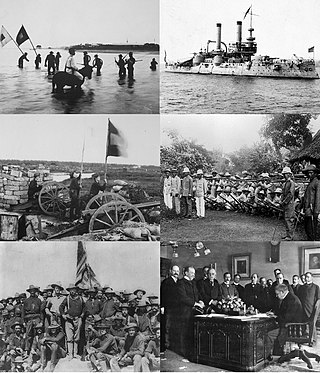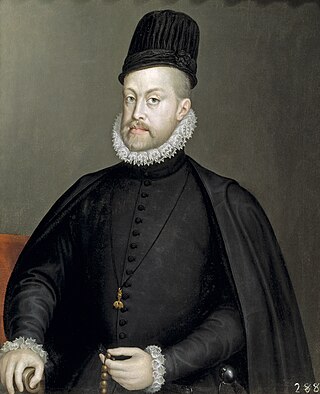
Colombia, officially the Republic of Colombia, is a country primarily located in South America with insular regions in North America. The Colombian mainland is bordered by the Caribbean Sea to the north, Venezuela to the east and northeast, Brazil to the southeast, Ecuador and Peru to the south and southwest, the Pacific Ocean to the west, and Panama to the northwest. Colombia is divided into 32 departments. The Capital District of Bogotá is also the country's largest city hosting the main financial and cultural hub. Other major urban areas include Medellín, Cali, Barranquilla, Cartagena, Santa Marta, Cúcuta, Ibagué, Villavicencio and Bucaramanga. It covers an area of 1,141,748 square kilometers and has a population of around 52 million. Its rich cultural heritage—including language, religion, cuisine, and art—reflects its history as a colony, fusing cultural elements brought by immigration from Europe and the Middle East, with those brought by the African diaspora, as well as with those of the various Indigenous civilizations that predate colonization. Spanish is the official language, although Creole, English and 64 other languages are recognized regionally.

Catalonia is an autonomous community of Spain, designated as a nationality by its Statute of Autonomy. Most of its territory is situated on the northeast of the Iberian Peninsula, to the south of the Pyrenees mountain range. Catalonia is administratively divided into four provinces or eight vegueries (regions), which are in turn divided into 42 comarques. The capital and largest city, Barcelona, is the second-most populous municipality in Spain and the fifth-most populous urban area in the European Union.

Equatorial Guinea, officially the Republic of Equatorial Guinea, is a country on the west coast of Central Africa, with an area of 28,000 square kilometres (11,000 sq mi). Formerly the colony of Spanish Guinea, its post-independence name refers to its location near both the Equator and in the African region of Guinea. As of 2024, the country had a population of 1,795,834, over 85% of whom are members of the Fang people, the country's dominant ethnic group. The Bubi people, indigenous to Bioko, are the second largest group at approximately 6.5% of the population.

Francisco Franco Bahamonde was a Spanish military general who led the Nationalist forces in overthrowing the Second Spanish Republic during the Spanish Civil War and thereafter ruled over Spain from 1939 to 1975 as a dictator, assuming the title Caudillo. This period in Spanish history, from the Nationalist victory to Franco's death, is commonly known as Francoist Spain or as the Francoist dictatorship.

Puerto Rico, officially the Commonwealth of Puerto Rico, is a self-governing Caribbean archipelago and island organized as an unincorporated territory of the United States under the designation of commonwealth. Located about 1,000 miles (1,600 km) southeast of Miami, Florida, between the Dominican Republic in the Greater Antilles and the U.S. Virgin Islands in the Lesser Antilles, it consists of the eponymous main island and numerous smaller islands, including Vieques, Culebra, and Mona. With approximately 3.2 million residents, it is divided into 78 municipalities, of which the most populous is the capital municipality of San Juan, followed by those within the San Juan metropolitan area. Spanish and English are the official languages of the government, though Spanish predominates.

Spain, formally the Kingdom of Spain, is a country in southwestern Europe with territories in North Africa. It is the largest country in Southern Europe and the fourth-most populous European Union member state. Spanning across the majority of the Iberian Peninsula, its territory also includes the Canary Islands, in the Atlantic Ocean, the Balearic Islands, in the Mediterranean Sea, and the autonomous cities of Ceuta and Melilla, in Africa. Peninsular Spain is bordered to the north by France, Andorra, and the Bay of Biscay; to the east and south by the Mediterranean Sea and Gibraltar; and to the west by Portugal and the Atlantic Ocean. Spain's capital and largest city is Madrid, and other major urban areas include Barcelona, Valencia, and Zaragoza.

Spanish or Castilian (castellano) is a Romance language of the Indo-European language family that evolved from the Vulgar Latin spoken on the Iberian Peninsula of Europe. Today, it is a global language with about 500 million native speakers, mainly in the Americas and Spain, and about 600 million when including second language speakers. Spanish is the official language of 20 countries, as well as one of the six official languages of the United Nations. Spanish is the world's second-most spoken native language after Mandarin Chinese; the world's fourth-most spoken language overall after English, Mandarin Chinese, and Hindustani (Hindi-Urdu); and the world's most widely spoken Romance language. The country with the largest population of native speakers is Mexico.

The Spanish–American War began in the aftermath of the internal explosion of USS Maine in Havana Harbor in Cuba, leading to United States intervention in the Cuban War of Independence. The war led to the United States emerging predominant in the Caribbean region, and resulted in U.S. acquisition of Puerto Rico, Guam, and the Philippines. It also led to United States involvement in the Philippine Revolution and later to the Philippine–American War.

Philip II, sometimes known in Spain as Philip the Prudent, was King of Spain from 1556, King of Portugal from 1580, and King of Naples and Sicily from 1554 until his death in 1598. He was also jure uxoris King of England and Ireland from his marriage to Queen Mary I in 1554 until her death in 1558. Further, he was Duke of Milan from 1540. From 1555, he was Lord of the Seventeen Provinces of the Netherlands.

Valencia is the capital of the province and autonomous community of the same name in Spain. It is the third-most populated municipality in the country, with 807,693 inhabitants within the commune, 1,582,387 inhabitants within the urban area and 2,522,383 inhabitants within the metropolitan region. It is located on the banks of the Turia, on the east coast of the Iberian Peninsula on the Mediterranean Sea.

Futbol Club Barcelona, commonly known as FC Barcelona and colloquially as Barça, is a professional football club based in Barcelona, Catalonia, Spain, that competes in La Liga, the top flight of Spanish football.

Juan Carlos I is a member of the Spanish royal family who reigned as King of Spain from 22 November 1975 until his abdication on 19 June 2014. In Spain, since his abdication, Juan Carlos has usually been referred to as the rey emérito by the press.

Felipe VI is King of Spain. In accordance with the Spanish Constitution, as monarch, he is head of state and commander-in-chief of the Spanish Armed Forces, holding the military rank of captain general, and also plays the role of the supreme representation of Spain in international relations.

The monarchy of Spain or Spanish monarchy is the constitutional form of government of Spain. It consists of a hereditary monarch who reigns as the head of state, being the highest office of the country. The current King is Felipe VI since 19 June 2014, after the abdication of his father, King Juan Carlos I.

The Spanish Empire, sometimes referred to as the Hispanic Monarchy or the Catholic Monarchy, was a colonial empire that existed between 1492 and 1976. In conjunction with the Portuguese Empire, it ushered in the European Age of Discovery. It achieved a global scale, controlling vast portions of the Americas, Africa, various islands in Asia and Oceania, as well as territory in other parts of Europe. It was one of the most powerful empires of the early modern period, becoming known as "the empire on which the sun never sets". At its greatest extent in the late 1700s and early 1800s, the Spanish Empire covered over 13 million square kilometres, making it one of the largest empires in history.

The Spain national football team has represented Spain in men's international football competitions since 1920. It is governed by the Royal Spanish Football Federation, the governing body for football in Spain.

Mexico, officially the United Mexican States, is a country in the southern portion of North America. Covering 1,972,550 km2, it is the world's 13th largest country by area; with a population of almost 130 million, it is the 10th most populous country and has the most Spanish speakers in the world. Mexico is a constitutional republic comprising 31 states and Mexico City, its capital and largest city, which is among the world's most populous metropolitan areas. The country shares land borders with the United States to the north, with Guatemala and Belize to the southeast; as well as maritime borders with the Pacific Ocean to the west, the Caribbean Sea to the southeast, and the Gulf of Mexico to the east.

The Spanish Civil War was a military conflict fought from 1936 to 1939 between the Republicans and the Nationalists. Republicans were loyal to the left-leaning Popular Front government of the Second Spanish Republic, and consisted of various socialist, communist, separatist, anarchist, and republican parties, some of which had opposed the government in the pre-war period. The opposing Nationalists were an alliance of Falangists, monarchists, conservatives, and traditionalists led by a military junta among whom General Francisco Franco quickly achieved a preponderant role. Due to the international political climate at the time, the war had many facets and was variously viewed as class struggle, a religious struggle, a struggle between dictatorship and republican democracy, between revolution and counterrevolution, and between fascism and communism. According to Claude Bowers, U.S. ambassador to Spain during the war, it was the "dress rehearsal" for World War II. The Nationalists won the war, which ended in early 1939, and ruled Spain until Franco's death in November 1975.

Argentina, officially the Argentine Republic, is a country in the southern half of South America. Argentina covers an area of 2,780,400 km2 (1,073,500 sq mi), making it the second-largest country in South America after Brazil, the fourth-largest country in the Americas, and the eighth-largest country in the world. It shares the bulk of the Southern Cone with Chile to the west, and is also bordered by Bolivia and Paraguay to the north, Brazil to the northeast, Uruguay and the South Atlantic Ocean to the east, and the Drake Passage to the south. Argentina is a federal state subdivided into twenty-three provinces, and one autonomous city, which is the federal capital and largest city of the nation, Buenos Aires. The provinces and the capital have their own constitutions, but exist under a federal system. Argentina claims sovereignty over the Falkland Islands, South Georgia and the South Sandwich Islands, the Southern Patagonian Ice Field, and a part of Antarctica.

Madrid is the capital and most populous municipality of Spain. It has almost 3.4 million inhabitants and a metropolitan area population of approximately 7 million. It is the second-largest city in the European Union (EU), and its monocentric metropolitan area is the second-largest in the EU. The municipality covers 604.3 km2 (233.3 sq mi) geographical area. Madrid lies on the River Manzanares in the central part of the Iberian Peninsula at about 650 meters above mean sea level. The capital city of both Spain and the surrounding autonomous community of Madrid, it is also the political, economic, and cultural centre of the country. The climate of Madrid features hot summers and cool winters. The primitive core of Madrid, a walled military outpost, dates back to the late 9th century, under the Emirate of Córdoba. Conquered by Christians in 1083 or 1085, it consolidated in the Late Middle Ages as a sizeable town of the Crown of Castile. The development of Madrid as administrative centre fostered after 1561, as it became the permanent seat of the court of the Hispanic Monarchy.






















